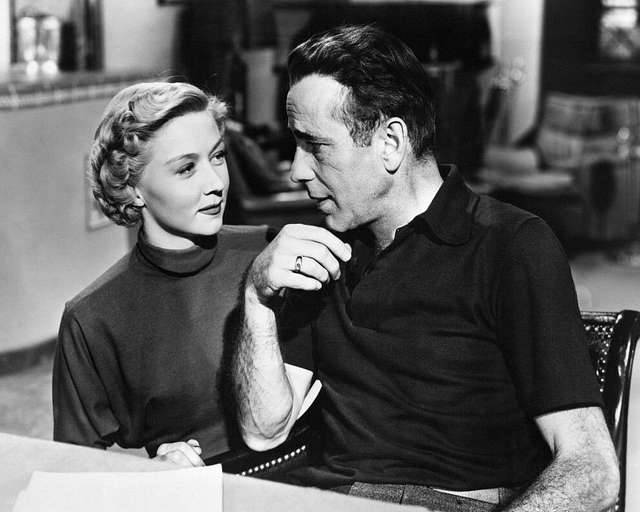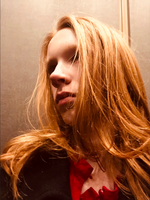Dialecticals I: What I've Been Reading, Watching and Listening To

Whatever Happened To Mindless Television?
One of the things I regret about the modern world is our tendency towards choice. In movies and books from the last decade, a heartbroken or depressed character will wander around a Hollywood set, driving in the rain or smoking in a dark corner, but they inevitably return to the living room of their grand palace or squalid apartment, in which they turn on their TV, and are swept away with generality. A steady stream of effortless, random knowledge is available to them. They flip through the channels: sports, soap opera, war in a foreign country. They turn the screen off, the light still radiating in their vision. They turn it back on.
Our modern equivalent of this phenomenon is, I suppose, the proliferation of endless scroll social media apps, such as Tiktok and Instagram, in which the user browses through split-second videos meant to amuse or inform. Built for a short attention span and even curated to our own interests, I find these apps unable to satisfy for more than a few minutes, and they often leave me feeling worse than before (perhaps, TV used to do the same).
The uncomfortable reality is that I make choices on what I read, what I watch and what I listen to. I have lists of books, movies and albums to consume, and I do so with a relative pace month after month. Some I enjoy more than others, some enlighten while others disappoint, but I choose all of them, for better or worse. My choices of art affect my view of culture, and thus I take this selection very seriously.
This has led me to a conclusion; I've chosen to share what I'm consuming here, every month, and a few of my thoughts.
On Dialecticals
Aristotle credited the invention of the dialectical to an ancient philosopher known as Zeno of Elea, and the perfection of them to Socrates. The concept was simple: to engage in a dialogue between people with conflicting beliefs on a subject or artwork without any of the thrills of typical debate. No rhetoric, no emotional appeals - just straight logic. The Medieval model of the dialectical is shockingly simple, written as a framework for an argument and its dissent. Dominican University quotes it as:
The question to be determined ("It is asked whether...");
A provisory answer to the question ("And it seems that...");
The principal arguments in favor of the provisory answer;
An argument against the provisory answer, traditionally a single argument from authority ("On the contrary...");
The determination of the question after weighing the evidence ("I answer that...");
The replies to each of the initial objections. ("To the first, to the second etc., I answer that...")
I chose this format for my dissection of art in my life because of its simplicity and brevity. The world is complicated, but what we're thinking doesn't have to be. Sometimes a provisory answer will do.
Is The Effect Above the Intent, or Are They The Same? (Books)
Writers are, at heart, in want - perhaps more so than they are in need. I can't name an author whose work does not contain a pre-eminent desire: for love, for fame, for enlightenment1. This exigency is necessary, of course, but it also gives the text body and strength, subtlety and urgency. Authors approach these yearnings in different ways, and often they separate them into two: the effect and the intent. The effect is their goal, while the intent is what they create on their way to the goal (e.g. the written text). Both are vital parts of the author's work, but in some they are more connected than others.
So, the question to be determined: is the effect above the intent, or are they the same?
In her 1997 memoir The Kiss, Kathryn Harrison eulogizes a relationship she had with a much older man: namely, her father. This agony consumed much of her youth, resulting in depression and disorder in her thirties. Predictably, the incestual relationship doesn't last, and all that remains are Harrison's words, her raw, beautiful effect, completely separate from the intent. The book is partly an elegy to a past lover, but also a deeply disturbing story of a young woman corrupted by someone who should be trusted. The text remains, even as the story is gone.
A provisory answer, then, that the effect is above the intent.
In her slim 1973 philosophy volume Agua Viva, the Brazilian author Claire Lispector portrays the written word as the ultimate medium, beyond visual art or music in its ability to communicate her feelings to her anonymous beloved. She treats it as a necessary evil, a dangerous tool that perverts her thoughts as well as portraying them. She writes:
May whoever comes along with me come along: the journey is long, it is tough, but lived. Because now I am speaking to you seriously: I am not playing with words. I incarnate myself in the voluptuous and unintelligible phrases that tangle up beyond the words. And a silence rises subtly from the knock of the phrases.
To Lispector, the effect and the intent are one and the same, inextricably linked. One is as much a byproduct of the other as vice versa; her desire begets her writing, and her writing begets her desire. The two are inseparable.
So, an argument against this provisory answer: the effect and the intent are one.
a complete list of books I read this month: A Widow For One Year by John Irving; Chronicle of A Death Foretold by Gabriel Garcia Marquez; The Kiss by Kathryn Harrison; White Teeth by Zadie Smith; Postwar by Tony Judt; Novelist as Vocation by Haruki Murakami; Agua Viva by Claire Lispector; The Silence of the Lambs by Thomas Harris; The Nineties by Chuck Klosterman; How the Garcia Girls Lost Their Accents by Julia Alvarez; Bad Behavior by Mary Gaitskill.
What Does It Mean To Be Tragic And Not A Hero? (Films)
Humphrey Bogart is, in every one of his films, a unique presence on screen. With an authority above his unexpected 5'8'' frame2, he sends shockwaves into each room he comes into, commanding and pleading and chastising his co-stars. In 1950's In A Lonely Place, he portrays Dixon Steele, a man falsely accused of a murder who loses his fiance and happiness due to his uncontrollable rage. Throughout the film, Steele acts extremely suspicious (reenacting the murder the way he supposes it happened3, striking up a romance with the lead witness etc.) and never heroic, and his ending is tragic, with his character once again alone partly by his circumstance and partly based on his dangerous, untenable behavior.4 At his nadir, he states:
I was born when she kissed me; I died when she left me; I lived a few weeks when she loved me.
In the traditional Oedipal sense, a tragic hero is someone who, through their own pride, greed or hubris, inadvertently loses everything. From Hamlet to Severus Snape, we sympathize with their plight as much as we admire their character, but what does it mean to be, like Dixon Steele, clearly tragic yet anything but heroic?
Or, more concisely, what does it mean to be tragic and not a hero?
The end of In a Lonely Place offers a provisory answer: to be tragic and not a hero is to be alone. Empty.
In Wes Anderson's The Royal Tenenbaums (2001), Gene Hackman brilliantly portrays the titular Royal Tenenbaum, a man long estranged from his dysfunctional adult children. He comes back into their lives under a false pretense - that he is dying of cancer and has three months to live. Similar to Steele, Tenenbaum lies, cheats and cons throughout the film, but unlike Bogart's more imposing and dramatic characterization, Hackman communicates to the audience as vaguely sympathetic, even as he proceeds to ruin every relationship in his life. The difference is his humor; because he is funny, he can't be hated, even though he's far from a hero.
So, an argument against the provisory answer: to be tragic and not a hero is to be a clown.
a complete list of films I saw this month: In A Lonely Place (1950, Nicholas Ray); The Royal Tenenbaums (2001, Wes Anderson); Silver Linings Playbook (2012, David O. Russell); Say Anything (1989, Cameron Crowe); Shiva Baby (2020, Emma Seligmann).
Is the Loss or the Birth More Important? (Music)
The famously private rapper J. Cole opened up briefly and poignantly on his 2016 album 4 Your Eyez Only, notably in the two part "She's Mine." The first portion talks about the girl who made him fall in love for the first time, while the second talks about the birth of his son5. In each, he seems consumed by a kind of ecstasy, remarking about the woman he lost or the son he gained. To Cole, it is clear, the former is equally important to the latter, and the two are treated as a kind of dichotomy, the birth coming along with the loss.
So, a question: generally, is the loss or the birth more important?
And a provisory answer, too, from Cole: the birth is equal to the loss.
In their first studio album Is This It? (2001), The Strokes make perfect anthems for a Friday night in summer, when everything seems possible and nothing likely. There are several fun songs on the album ("Last Nite," "New York City Cops"), but the one that always sticks with me is "Someday," a track of unique hopefulness, even in the face of failure. The gravelly voice of lead singer Julian Casablancas remains strong, even as he tells of his own defeats. His life is, after all, just beginning. He sings:
Oh, my ex says I'm lacking in depth/I will do my best/You say you wanna stay by my side/Darling, your head's not right/I see, alone we stand, together we fall apart/Yeah, I think I'll be alright
And so the counterargument: for the Strokes, the birth will always eclipse the loss.
a complete list of albums I listened to this month: Bon Iver's I, I; J. Cole's 4 Your Eyez Only; The Strokes' Is This It?; Kanye West's Yeezus; D'Angelo's Voodoo; Lauryn Hill's The Miseducation of Lauryn Hill; Radiohead's Ok Computer.
- David Foster Wallace may be the exception, the perfect observer.
- Bogart was supposedly so nervous about his height that, on the set of Casablanca, he wore platform boots for most of filming. The fact that this circus trick worked is what's surprising; he appears much taller than almost anyone else in the film.
- OJ Simpson did a similar thing in If I Did It.
- I was speaking with my brother about In A Lonely Place and Bogart's earlier work Casablanca. "In Casablanca, he was some guy named Humphrey Bogart," he said. "But in In A Lonely Place, he was Humphrey Bogart, you know?"
- The pronoun in the song's title encouraged fans to believe that Cole's child was a daughter - the rapper is so private that this confusion wasn't clarified until 2018's "Boblo Boat," in which he raps "with my son in Tanzanian sunrises/thinking about them better days."
